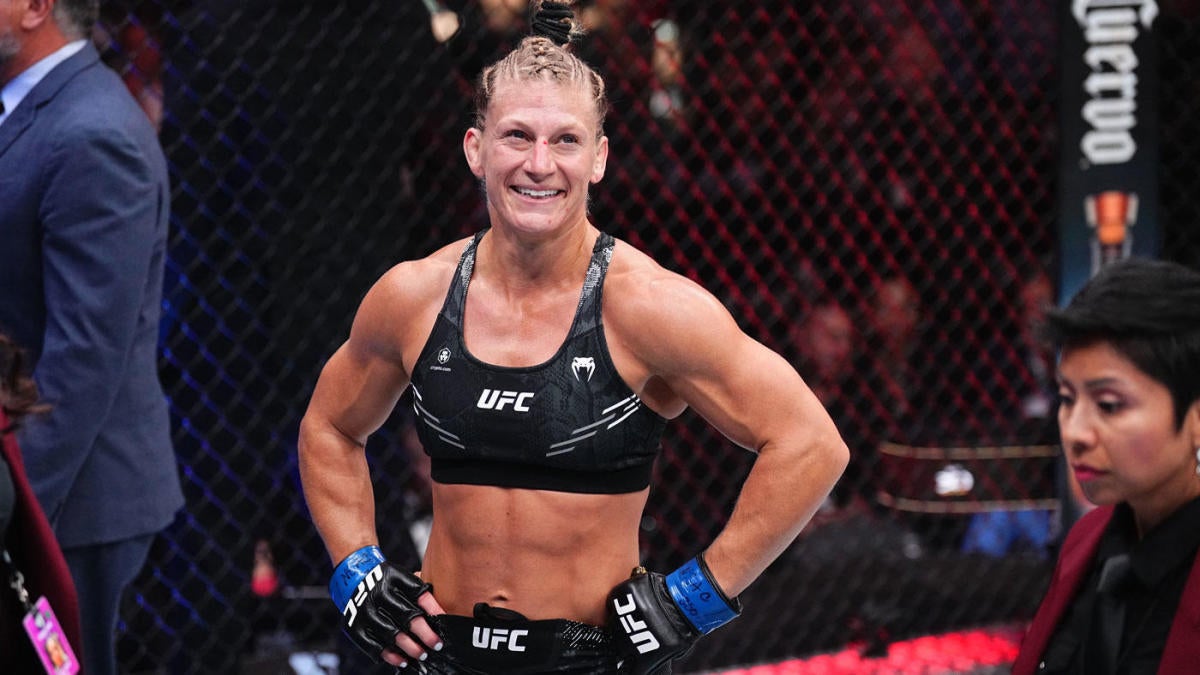While the main card of UFC 320 promised a night of high-stakes rematches and championship glory, an unexpected drama unfolded backstage, casting a contentious shadow over the women`s bantamweight division. The traditional weigh-in, typically a routine procedural hurdle, became the focal point of a heated dispute, culminating in serious accusations of “dirty tactics” and a stark call for greater accountability within the professional fighting landscape.
The Scales of Injustice: Chiasson`s Weight Miss
The controversy centers around Macy Chiasson, ranked #5 in the women`s bantamweight division, who failed to hit the 135-pound mark, tipping the scales at 1.5 pounds over the limit. For a fighter looking to cement her title ambitions following two consecutive victories, this misstep was more than just a minor inconvenience; it was a significant blow to her professional standing and a direct challenge to the integrity of the scheduled bout.
It`s worth noting, with a touch of irony perhaps, that this isn`t Chiasson`s first encounter with the weight-cutting conundrum within the UFC. Such repeated occurrences often raise eyebrows, prompting observers to question not just a fighter`s discipline but also their commitment to the foundational rules of the sport.
Yana Santos Unleashes Fury: “Straight-Up Dirty”
The opponent in question, Yana Santos, was understandably far from pleased. Her reaction, articulated across social media, was swift and unflinching. Santos didn`t mince words, expressing her disbelief and frustration at Chiasson`s inability to make weight, framing it as a profound disrespect to the strenuous efforts undertaken by professional athletes.
“Imagine signing a contract and showing up overweight AGAIN,” Santos passionately wrote. “Some of us respect the grind. Others disrespect the sport. See you Saturday.”
However, Santos`s outrage escalated further with a specific, highly damaging accusation. She claimed that the commission had offered Chiasson an additional hour to shed the excess weight, an offer Chiasson allegedly flatly refused. This detail transformed a simple weight miss into a perceived act of calculated gamesmanship.
“The worst part? The commission offered her an extra hour to make weight. She REFUSED,” Santos asserted. “Why? Because she wants an unfair advantage. This isn’t just unprofessional—it’s straight-up dirty.”
This allegation elevates the incident beyond mere incompetence; it suggests a deliberate choice to gain an edge, however slight, at the expense of fair play. In a sport where every pound, every ounce, can significantly impact performance, an extra 1.5 pounds could indeed be seen as a tangible, if ethically questionable, advantage.
Thiago Santos Joins the Fray: A Call for Harsher Penalties
Adding significant weight to Yana`s argument (pun intended, of course) was her husband, former UFC light heavyweight title challenger Thiago Santos. Known affectionately as `Marreta,` Thiago echoed his wife`s sentiments, extending the criticism to a broader lament about professionalism in MMA and advocating for stricter measures against repeat offenders.
“Unbelievable how some people are not professional in this sport,” Thiago commented, highlighting a persistent issue for his wife. “It’s Yana’s 4th opponent that didn’t make the weight. Some (stronger) punishments (have) to be made.”
Thiago`s intervention shifts the discussion from a singular incident to a systemic problem. If Yana Santos has indeed faced four opponents who failed to meet their contracted weight, it underscores a troubling pattern that directly impacts her career trajectory and the integrity of her fights. His call for “stronger punishments” resonates with many who believe that current penalties—typically a percentage of the fighter`s purse—may not be a sufficient deterrent for those who repeatedly miss weight.
The Broader Implications: Fair Play and Professionalism
This pre-fight skirmish at UFC 320 serves as a stark reminder of the delicate balance between competitive drive and professional responsibility in mixed martial arts. A weight miss, particularly one accompanied by accusations of deliberate refusal to rectify it, strikes at the core of sportsmanship.
For fans, such incidents can dilute the anticipation of a fair contest, replacing excitement with questions about legitimacy. For fighters like Yana Santos, it means entering the cage against an opponent who, by rule, should be fighting at a lighter, and ostensibly less powerful, weight. This situation ignites a debate that extends beyond the individual fight: What constitutes fair play? What are the true costs of a weight miss, beyond a monetary fine? And how can the sport ensure that every fighter steps onto the scale, and then into the octagon, with the utmost respect for their opponent and the rules of engagement?
As UFC 320 unfolds, the main event may capture the headlines, but the echoes of this bantamweight controversy will undoubtedly linger, prompting reflection on the professionalism demanded at every level of the fight game.

